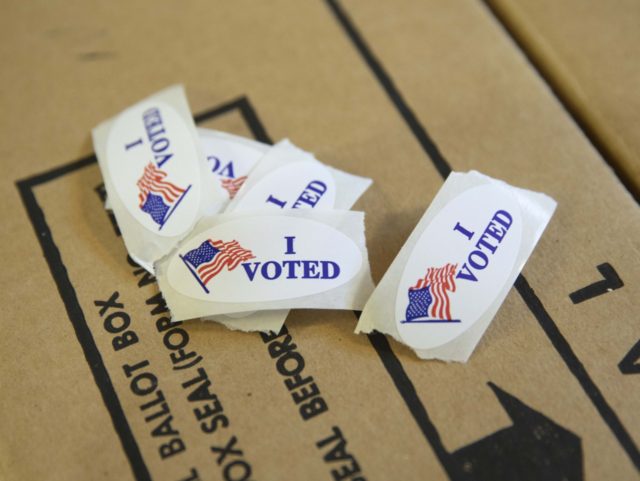California Republicans are determined to take back the four congressional seats they lost in Orange County in 2018, among the seven the party lost statewide.
They have some political momentum, as Nancy Pelosi’s Democrats have proven incapable of doing anything except arguing about impeaching President Donald Trump.
Unfortunately, the tactic of “ballot harvesting,” introduced last November, has made it impossible for Republicans ever to win again.
“Ballot harvesting” involves using a third party, such as a well-trained political activist, to collect mail-in ballots on behalf of other voters and deliver them to the polls.
There is no vetting of ballot harvesters, and no limit to how many ballots they can deliver.
The tactic was legalized by then-Gov. Jerry Brown in 2016, over GOP objections. Hundreds of thousands of ballots were dropped off at polling places in 2018, making a difference in key races.
Democrats argue that ballot harvesting is necessary to ensure equal access to the polls — just like other innovations, such as early voting and same-day voter registration. They say that anything that makes it marginally harder to vote is undemocratic.
Democrats also accuse Republicans of trying to “suppress” the vote by pushing for safeguards to prevent fraudulent voting, such as requiring photo ID to vote or striking felons and non-citizens from voters’ rolls.
It is worth noting that what Democrats are doing in California, which they want to export nationwide, is virtually unknown in the rest of the world.
The international norm for democracy is in-person voting, with photo ID, and registration well in advance. Absentee voting tends to be restricted, and mail-in voting is rare.
Democrats, who like citing international practice on issues like health care, reject international standards when it comes to voting itself.
I personally observed elections in South Africa, just a few years after the end of apartheid, where the right to vote was considered especially precious by the country’s black population. Voters were still required to register to vote weeks in advance, and had to bring their government-issued photo ID to their polling places.
No one thought such practices “racist”; quite the opposite, since they protected black voting rights by ensuring the integrity of the vote.
Republicans, who believe fervently in American exceptionalism, want American elections to look like that — not because they want to follow the world’s example, but because that is closer to what our elections used to look like (and still do, in some states).
Democrats are, in effect, arguing for a new type of democracy — one that requires no effort from the voters, where elections are no longer a participatory process, but a mass recording of preferences.
Defeated Republicans and frustrated Republican voters have urged their party to compete with Democrats: “If one party’s harvesting ballots, both parties need to do it,” ousted Rep. Jeff Denham told the San Francisco Chronicle.
But there is a cultural difference between the parties. Democrat voters — especially newly-registered ones — might willingly hand their ballots to a stranger. But Republicans refuse to do so, even when approached by Republicans.
“When you go to a Republican household and ask for their ballot, you know what you get on the other side? You get the sound of a 12-gauge shotgun being clicked back and forth,” Republican National Committeeman Shawn Steel told Breitbart News Tonight this week, describing the party’s experiments with ballot harvesting in a recent special election.
The irony is by taking their right to vote seriously, Republican voters are being disenfranchised.
A democracy cannot function if there is such a wide gulf in ideas about what democracy actually is, and how it should work. But there is almost no remedy, because Democrats hold a supermajority in both houses of the state legislature, and ballot harvesting virtually ensures perpetual one-party rule.
The courts are the only option — and the liberal Ninth Circuit is presiding over a case in which Democrats are challenging an Arizona law banning the tactic.
Given the political bias of that appellate court, the only recourse may be the U.S. Supreme Court itself, which may not hear the case in time for the 2020 elections.
If Republicans are serious about competing in Orange County, among other places, they need to act with urgency. The U.S. Department of Justice should intervene in the Arizona case, and sue California for violating the voting rights of its citizens. Otherwise, one-party rule will spread elsewhere.
Joel B. Pollak is Senior Editor-at-Large at Breitbart News. He is a winner of the 2018 Robert Novak Journalism Alumni Fellowship. He is also the co-author of How Trump Won: The Inside Story of a Revolution, which is available from Regnery. Follow him on Twitter at @joelpollak.

COMMENTS
Please let us know if you're having issues with commenting.